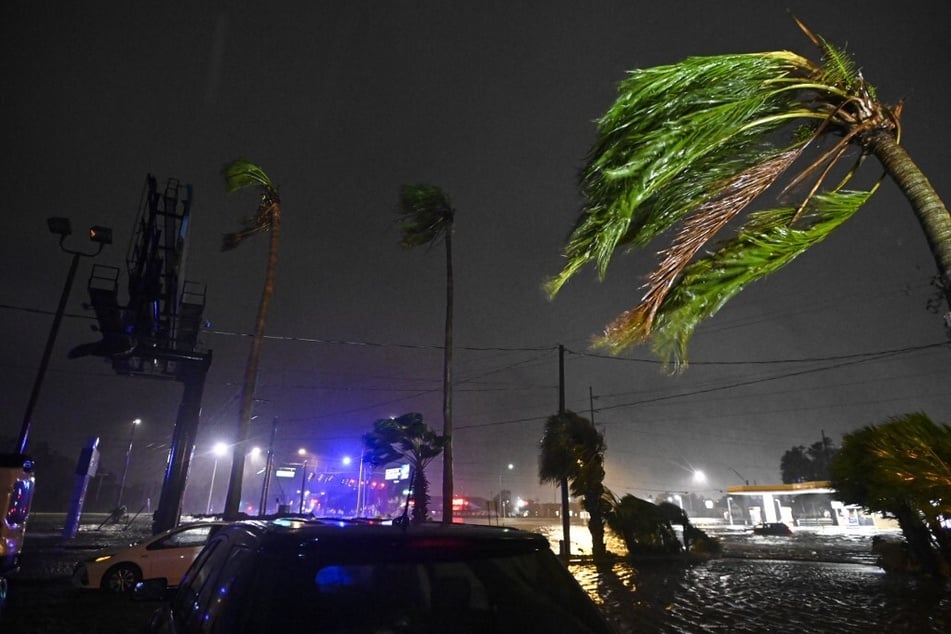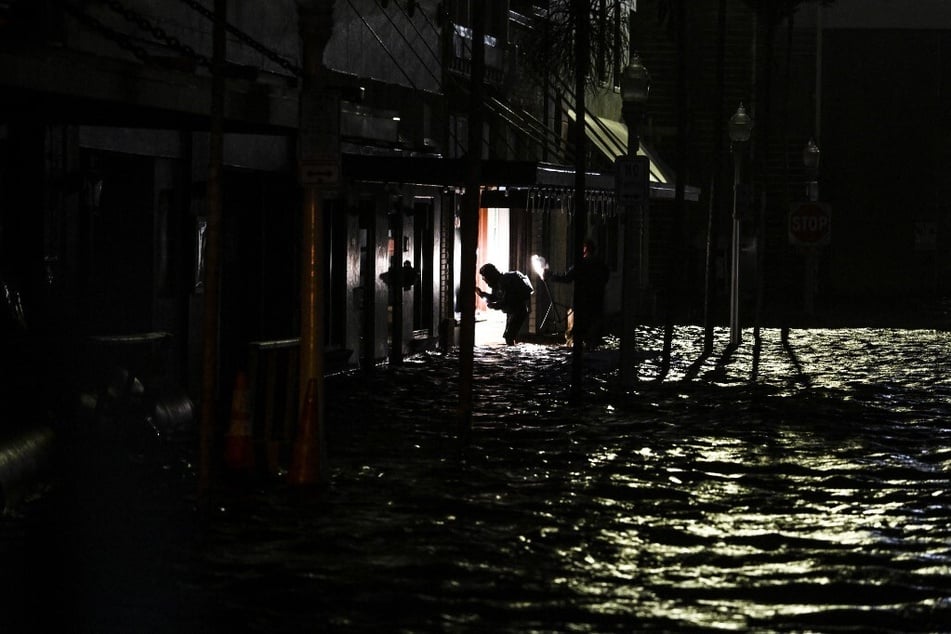Monster Hurricane Milton makes landfall and wallops coast of Florida
Siesta Key, Florida - Hurricane Milton crashed into the Florida coast Wednesday, packing furious winds and triggering life-threatening storm surges across a region still reeling from another massive storm two weeks before.

The weather front made landfall as a Category 3 storm near Siesta Key, in a densely populated area on the state's western coast.
Milton triggered tornadoes before its arrival, with four confirmed fatalities after a twister struck a senior living community in St. Lucie county.
President Joe Biden was briefed on the "initial impacts" of Milton, the White House said, as responses from Democrats and Republicans are likely to be closely scrutinized with just four weeks until the tightly-contested presidential election.
Extreme winds of up to 105 miles per hour were recorded on Wednesday night, according to the National Hurricane Center. Tidal surges were expected to inundate western Florida's heavily populated and low-lying Gulf Coast.
At least 1.6 million households and businesses lost power in the state by late Wednesday, according to tracker poweroutage.us.
Milton is later expected to rip through inland areas towards the Atlantic Ocean, with tourist hub Orlando – home to Disney World, which has closed for the storm – in its path.
In cities up and down Florida's western coast, the wind howled furiously and torrential rain fell as people took shelter wherever they could.
In the city of Sarasota, near Siesta Key, gusts of wind blew panes of glass from buildings on the waterfront. The streets were deserted and trees swayed almost horizontal, barely able to withstand the wind. Businesses were shuttered and sandbagged.
On a wooden board fixed against a window of an old red brick building, someone wrote: "Be kind Milton."
The airports in Tampa and Sarasota were closed until further notice.
Just before landfall, Florida Governor Ron DeSantis urged state residents who had not evacuated to "stay inside and stay off the roads," adding: "Flood waters and rushing storm surge are very dangerous."
Florida reels from second major storm in weeks

Milton struck just two weeks after another major hurricane, Helene, devastated Florida and other southeastern states – killing at least 235 people, with emergency crews still working to provide relief.
"I am nervous. This is something we just went through with the other storm – ground saturated, still recovering from that," Randy Prior, who owns a pool business, told AFP.
Prior (36) says he planned to ride out Milton at home after recently toughing out Hurricane Helene, which sparked flooding in Florida before wreaking havoc across remote areas further inland such as western North Carolina.
Presidential candidate Donald Trump has sought political advantage by falsely saying storm aid is channeled away from residents, many of whom are supporters of his Republican Party, and toward migrants.
At the White House on Wednesday, President Biden slammed Trump's "onslaught of lies."
"There's been a reckless, irresponsible and relentless promotion of disinformation and outright lies," Biden said in angry remarks.
Vice President Kamala Harris, who is taking on Trump at the polls on November 5, echoed Biden's criticisms in a separate telephone interview with CNN.
"It is dangerous, it is unconscionable, frankly, that anyone who'd consider themselves a leader would mislead desperate people to the point that those desperate people would not receive the aid to which they are entitled," she said.
Scientists say global warming has a role in intense storms as warmer ocean surfaces release more water vapor, providing additional energy for storms, which exacerbates their winds.
Cover photo: Miguel J. Rodriguez Carrillo / AFP